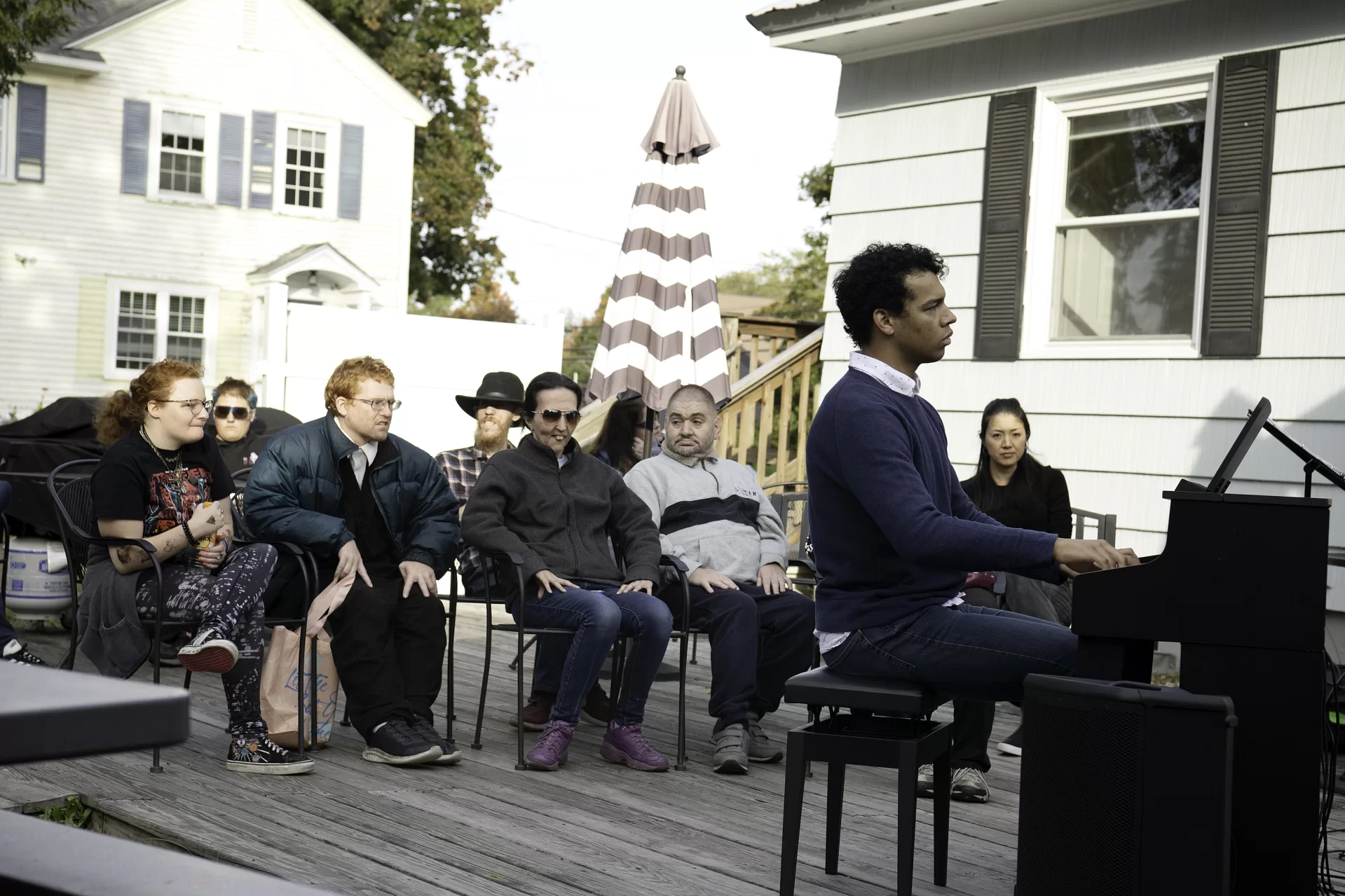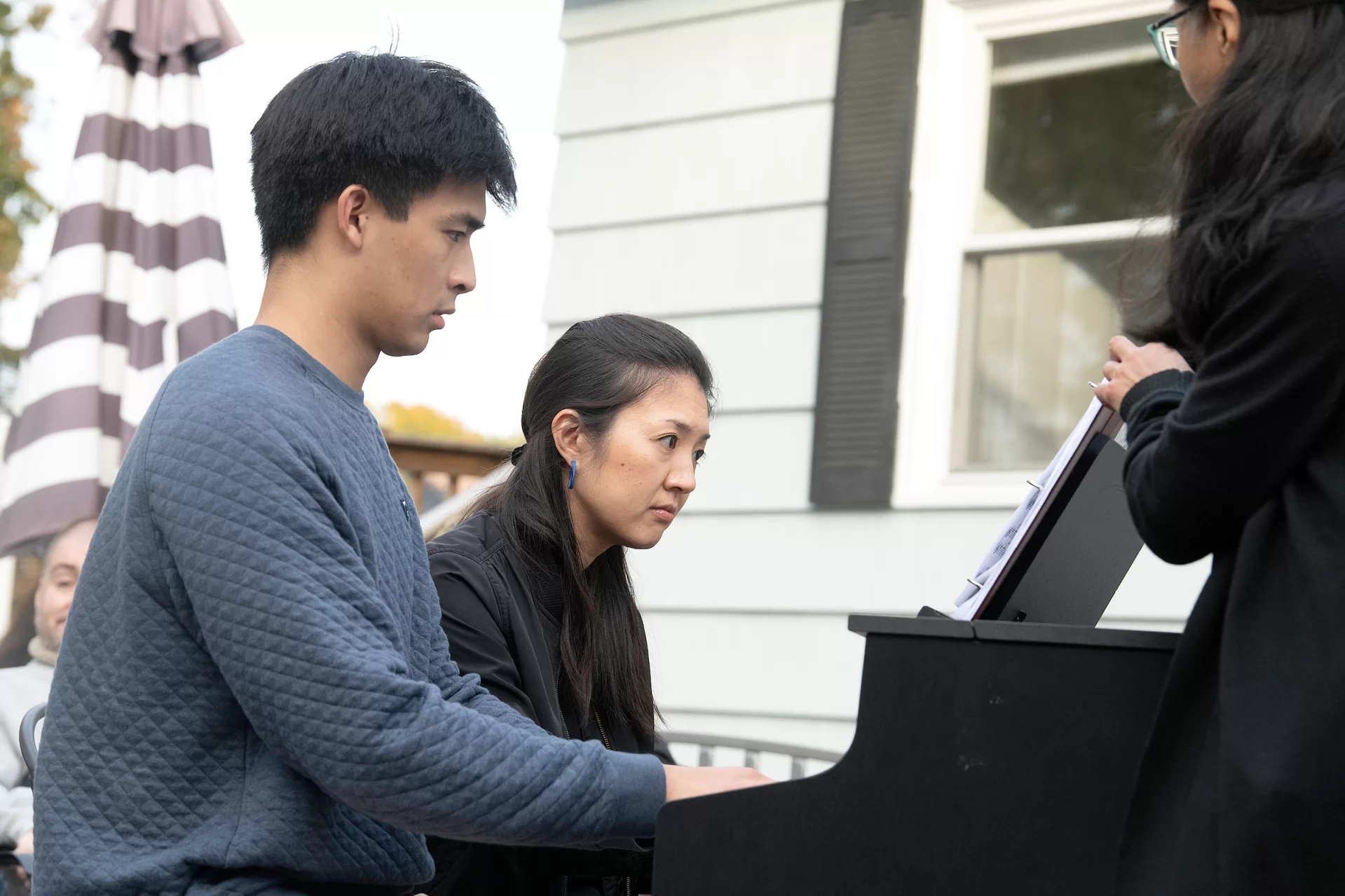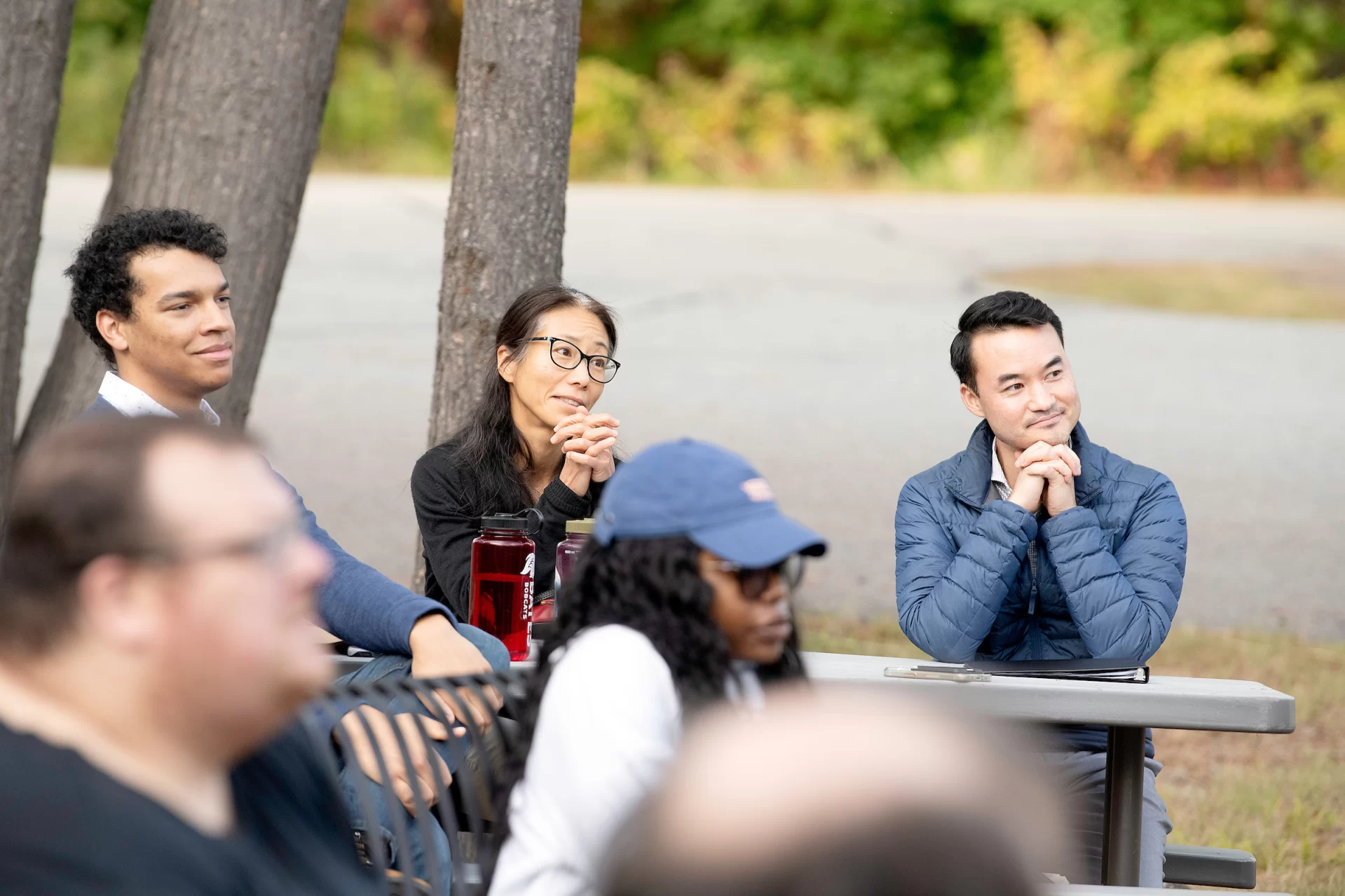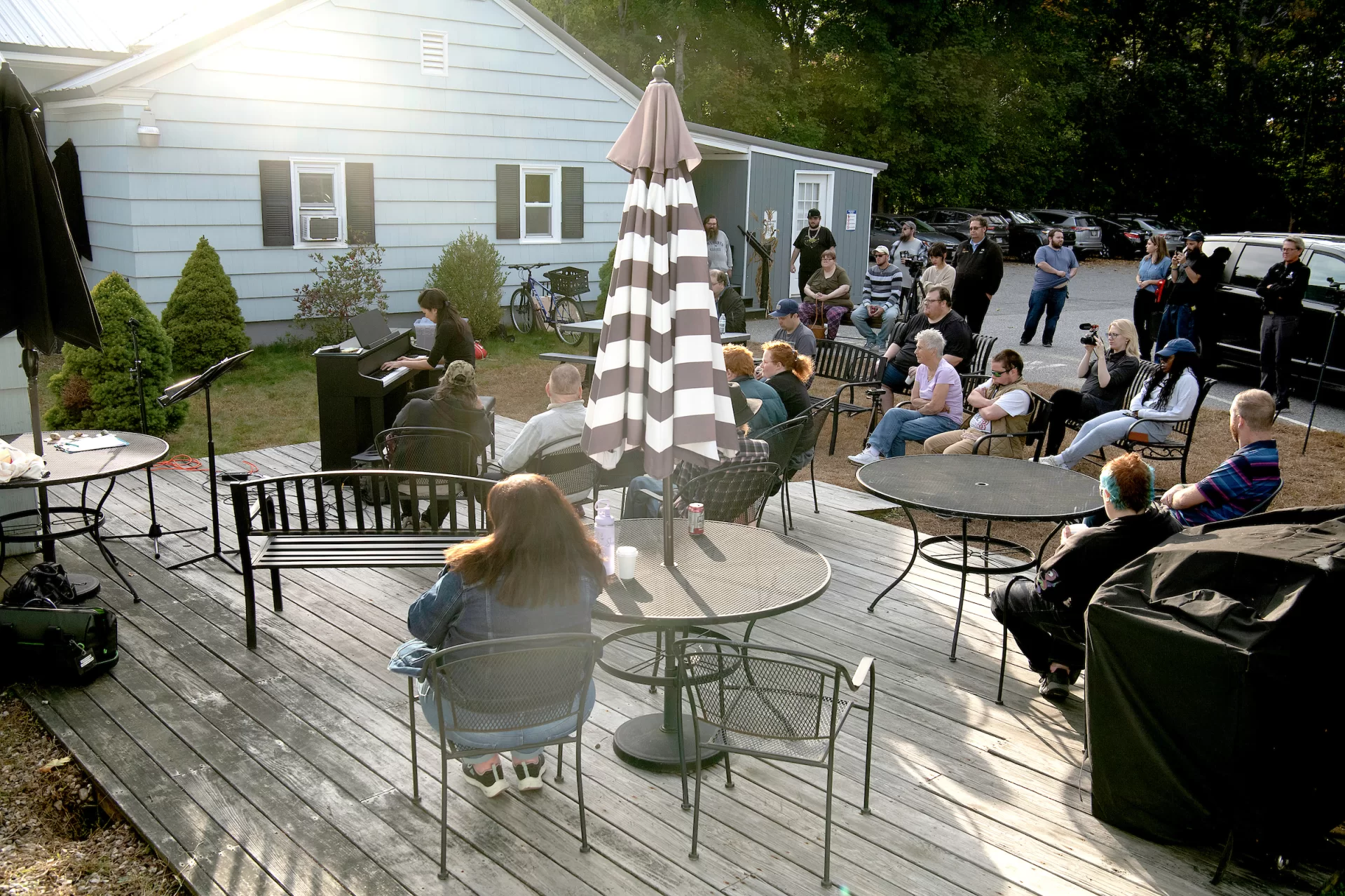
Commuter traffic rumbled past the homey building on Main Street, but out back, the vibe was considerably more melodious. Instead of revving engines, live classical music was the soundtrack for an early October day at the Looking Ahead Clubhouse in Lewiston.
Two Bates students and a newly appointed professor of music helped to bring the soothing beauty of music, through piano and voice, to an audience at the vocational center for adults living with mental illness.

The Bates musicians performed as part of the national Gather Hear Tour, led by pianist Miki Sawada, who is visiting various towns and cities to perform for audiences who may not typically have access to live music.
Sawada performs in intimate, inclusive spaces such as community centers, shelters, and public schools, rather than traditional concert halls. At the clubhouse on Oct. 4, she and the Bates students and their professor performed outside on the patio behind the building, located just a mile from campus. Clubhouse members gathered close by.
Jahan Baker-Wainwright ’25, a biochemistry major from Cottage Grove, Wis., played Beethoven’s Pathetique Sonata. Marrich Somridhivej ’26, a biology major from South Windsor, Conn., and Sawada performed Amy Beach’s “Summer Dreams” for four hands.
Chris Gepford, the director of the Looking Ahead Clubhouse, said that the event hit some important notes. “We had recently started a relationship with Bates,” through the Harward Center for Community Partnerships, he said, “and this was a wonderful way to start our partnership.”
Hosting the Gather Hear visit and events like it can help raise awareness of the clubhouse’s programming in the Lewiston-Auburn community, he added, “so that individuals with mental health needs have a program where they are colleagues, and their unique talents and abilities are utilized [so they can] grow into the best version of themselves.”

For the students, the Gather Hear performance was a meaningful opportunity to connect through music. “Classical music often lies behind a barrier that many people struggle to overcome,” said Baker-Wainwright. “My job as a classical musician is to share music, and I’m happy to have contributed to a more inclusive experience.”
Somridhivej, who has been playing the piano since age 6, noted how he has “typically performed in front of judges or a competition jury, where the focus is on technical precision and evaluation. My performance became less about perfection, and more about connecting with people and sharing the beauty of music.”

Gepford said, “We loved having the opportunity to be a part of individuals’ academic journey.”
Zen Kuriyama, who joined the Bates faculty this fall and directs the College Choir, sang two pieces by Franz Schubert: his emotionally charged “Der Doppelgänger” and the uplifting “An die Musik.” Choosing contrasting selections was intentional, said Kuriyama. “We wanted songs that represented a binary of mental states — one ecstatic and joyful, the other frenetic and dark.”
While Gepford said classical music is not the go-to listening choice of clubhouse members, “we had a lot of positive feedback from our group. Everyone agreed that the music was wonderful, enjoyable, and calming.”

As one of the clubhouse members told Kuriyama afterward, “The negative voices in my head stopped for the first time in months while listening to your music.”
That response speaks directly to the sentiments expressed in of one of the pieces Kuriyama sang, Schubert’s “An die Musik.” The title means, simply, “To Music,” and the opening lyrics are: “In how many a bleak hour, when I am enmeshed in life’s tumultuous round, have you kindled my heart to the warmth of love, and borne me away to a better world.”



